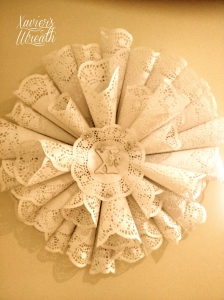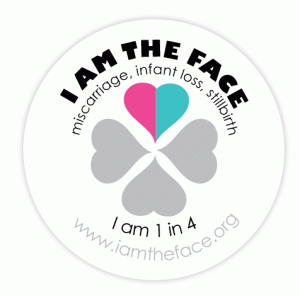Over the past few weeks I have met quite a few new people – both online and in real life. There is always the hesitation over when and if I reveal how many children I really have. The pause before I tell my whole story and the silent steeling of my heart as I await a reaction. People are kind. I have found this to overwhelmingly be the case. But I always wonder – what do they think of me now? How has their perception of me change now that they know I have a child who was lost to SIDS?
Before Xavier died, I knew no-one who had lost a baby to SIDS. In one of those cruelly ironic twists of fate, my mother told me a few days before Xavier died how she had bought a red nose pin for SIDS & Kids. She said “Can you imagine it?”. I scoffed and said “that would never happen to our family.” And I truly believed it – I did not think SIDS could be a possibility within our family. I wonder if other people think the same thing. I wonder if, behind the kindness, there remains a belief that a person who loses a baby to SIDS must have done something wrong. I would instantly forgive anyone who thought that, but it does make me hesitant to talk about Xavier’s story. I have been through the guilt and the judgement and I have arrived on the other side. Most days, I no longer blame myself. But when I tell the story to someone new, when it is fresh and shocking to them, I do fear judgement. My story isn’t a pleasant one to tell or to hear. My normal is different.
I have placed Xavier’s story in the world. I have written about him here and in other places. A quick google of my name will reveal Xavier’s story before my own. As someone who has just started a new business, this worries me. Will people judge me before they know me because my son died? Will they assume that I am less capable due to grief? Will the words that have bled onto internet cause me harm in the future? I think any blogger that writes about intensely personal things faces that question. What will people who don’t know me think of me? What image have my words constructed? Will I be seen as brave and helpful? Or as an over-sharer who should have taken more care of her online persona? If Xavier hadn’t died, I may not have returned to the embrace of words. If Xavier hadn’t died, my google search results would look very different. If Xavier hadn’t died, I would be travelling a different path and perhaps in a different career. But he did die. And I needed those words. And I wanted to share those words with people who felt something they could not articulate. I wanted people to feel less alone. Because their normal is different.
My littlest baby is growing up fast. Toddling and talking and spending time outside of my care. He is happy and thriving and he and his brother are the lights of my life. And I am filling the time busy-ness. I am finding myself feeling anxious about what I have set out to achieve. And I berate myself for feeling this way. I feel as though I waded through the raging seas of early grief and managed to swim. That I should be able to conquer anything. But I was careful with my mental health in those early months. I exercised. I watched what I ate. I slept. I talked things out. I took time to appreciate all that was beautiful. I have let many of those things slip. And keeping my mind healthy needs all those things. Grief has no time frames. You don’t wake up and find it’s over and done with. A little over two years ago my normal changed. And it’s still different.






